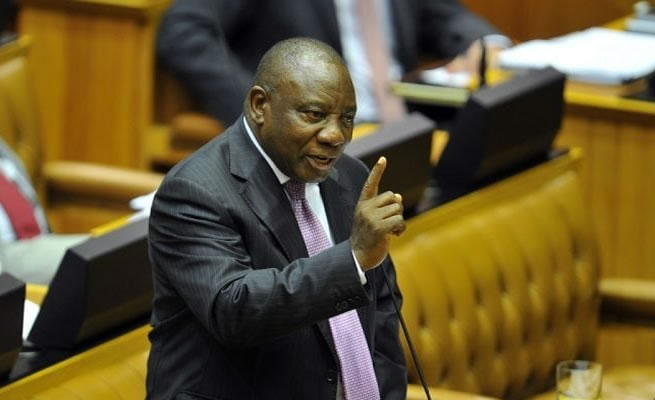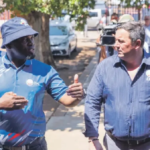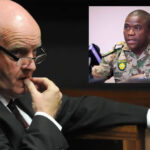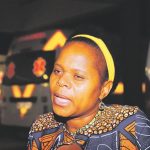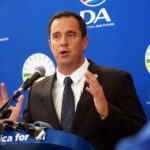President Cyril Ramaphosa, once hailed as the beacon of hope for the African National Congress (ANC), now finds his grip on the ANC NEC slipping as rebels within the committee challenge his authority. The power dynamics within the party have taken a dramatic turn as talks of a possible coalition government between the ANC and the Democratic Alliance (DA) gain momentum.
Highly placed sources within the NEC have revealed a significant shift in the balance of power, signaling a potential turning point for Ramaphosa's leadership. The recent ANC NEC meeting witnessed fervent debates on various options for forming a new government. While the ANC-DA coalition proposal faced defeat, a Government of National Unity (GNU) emerged as a more favorable alternative.
However, the path to a GNU is not without obstacles, as internal ANC forces attempt to sideline parties such as the Economic Freedom Fighters (EFF) and MKP from participating in the discussions. The ongoing GNU talks aim to establish a new government, but the ANC's failure to secure an outright majority and its loss of the parliamentary majority for the first time since the dawn of democracy have forced the party to seek alliances with other political entities.
Political analyst Professor Sipho Seepe, in an exclusive interview, shared his insights on the unfolding political landscape. He warned that Ramaphosa's future within the ANC hangs in the balance, especially if an ANC-DA coalition becomes a reality. Seepe emphasized that the election results were disastrous, and Ramaphosa should take responsibility for the party's performance.
"Any leader with integrity should not be forced to step down. However, in this case, Ramaphosa should fall on his sword. The election outcomes were a clear indication of failure. Ramaphosa's obsession with being president is overshadowing the best interests of the ANC," Seepe asserted.
The consideration of talks with the DA has sparked controversy, as the party has been a vocal opponent of many ANC policies, including the recent National Health Insurance (NHI) bill. Seepe questioned the wisdom of aligning with a party that has historically opposed ANC initiatives, cautioning against the potential consequences of such a move.
"The DA has consistently pushed against ANC policies, and it is no surprise that they are viewed as the enemy. This is the same party that has threatened action against the ANC in the past. Ramaphosa's willingness to engage with them raises concerns about his judgment," Seepe explained.
Critics argue that some NEC members who remain silent and support Ramaphosa are merely safeguarding their personal interests. Seepe criticized their motives, suggesting that they prioritize personal gain over the well-being of the party. The growing influence of ANC Chairperson Gwede Mantashe, Deputy President Paul Mashatile, and Nomvula Mokonyane within the NEC has further amplified the shifting power dynamics within the ANC.
Insiders have also revealed concerns within the NEC that individuals close to Ramaphosa have been involved in behind-the-scenes negotiations with the DA, potentially creating "side deals" that undermine party unity. The rejection of an ANC-DA coalition by the NEC indicates a preference for a "black pact" grouping consisting of the ANC, Inkatha Freedom Party (IFP), EFF, and Pan Africanist Party (PA). The possibility of the MK Party joining the coalition remains on the table.
The sources maintain that Ramaphosa's hold on the NEC appears tenuous, and his continuation as president could be in jeopardy if he persists with the ANC-DA coalition agenda. The fluidity of the current situation raises the possibility of a different president emerging within the GNU in the coming months, marking a potential turning point in South African politics.
As the ANC grapples with internal divisions and coalition negotiations intensify, the future of President Cyril Ramaphosa and the party itself hang in the balance. The shifting power dynamics within the ANC NEC and the resistance to a potential ANC-DA coalition highlight the challenges faced by Ramaphosa's leadership.

Follow Us on Twitter

